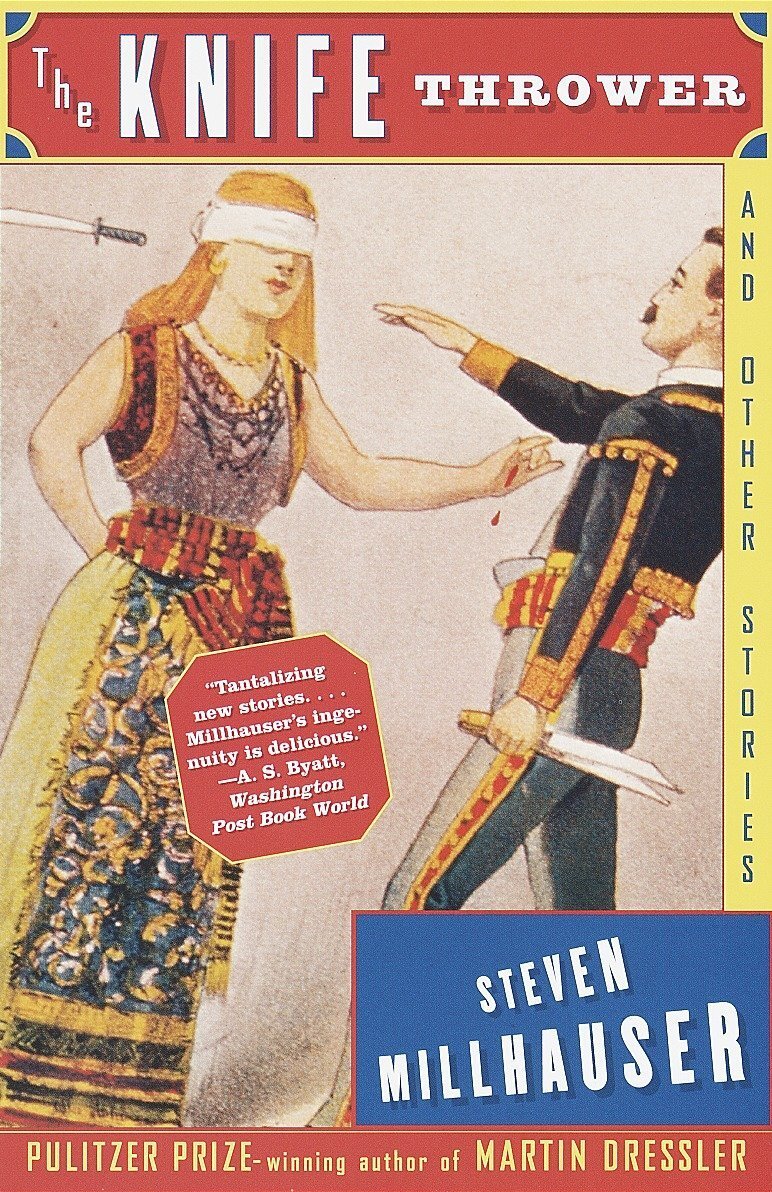The Sisterhood of Night
“The Sisterhood of Night” by fiction writer Steven Millhauser, published first in Harper’s Magazine and later in the short story collection The Knife Thrower and Other Stories, has easily become one of my favorite short stories ever. Written from an unknown adult narrator in an private investigator-esque collection of reportage and reflection, the mysterious activities of the town’s teenage girls freak out all the adults.
I am incredibly interested and devoted to narratives about girls, especially girls supporting girls and/or supporting themselves as girls. This story really investigates the fear adults/parents (mostly of the male variety) have towards girls - girlhood, womanhood, girls growing up and changing, the suspicion and regulation of teenage girls in general.
(Spoilers BTW) The Sisterhood of Night is a group of girls who meet and do nothing, together. Just exist in a space full of silent support and encouragement, where they don’t have to be or not be anything or anyone, the only rule being Don’t Talk About Fight Club. The adults in the town are so afraid that the girls are experimenting sexually with each other, that they’re engaging in witchcraft or other evil spiritual rituals, that it’s a cult, that there are non-consensual acts, that they’re planning some type of uprising. They can’t stand them being a mystery, doing unknown things, of being uncontrollable.
That fear and rage at not being able to control girls, especially from men in power, is what I see as the point of evaluation in this story. Why can’t the girls just be girls, have their own space, be unquestioned? As a former young girl, I feel supremely lucky to have been given the extensive freedom and privacy that I was, and that it was integral to my interior development and sense of self. I’ve known a range of women from various childhood/teenhood strictness levels, and I’ve heard arguments for the benefit of both high and low levels.
From a safety standpoint, I am on board with the parents in Sisterhood of Night not wanting their daughters to be sneaking out and meeting up in remote locations in the middle of the night. However I also completely support a system of girls getting together to be alone in themselves. “Me-time” but on a larger, organized scale.
Allow girls to be mysteries, just like the narrator stipulates at the end of the story. And, not to equate author to narrator, but like Millhauser stipulates by writing it. Having a male author of this type of pro-girl story was really a treat; it was entirely respectful and, I feel, a service to male-written feminist literature.
Xoxo
Kylie
